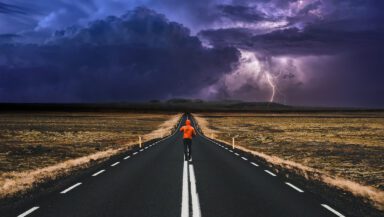The coronavirus is serious, and it’s spreading. The government has officially asked that everyone follow this official guidance.
Now more than ever before, strength in our communities is crucial. Here are five things you can do to support and strengthen your community.
1. Look after each other
During uncertain times like these, we are reminded how connected we are to those around us, even if we rarely speak. Follow official advice, particularly if you feel unwell. But also remember that it’s easy to check in on neighbours, friends and family – and others in your community at risk of feeling isolated – without physical proximity or contact.
Send messages, pick up the phone for a quick chat, send letters, leave gifts on people’s doorsteps. You can show your support for local and small businesses by checking in on them on social media – maybe even buying gift vouchers for use when things begin to return to normal. And while it is important to refrain from panic-buying, if you are able to buy a little more food than usual (or are clearing out your cupboards, what with all that extra time you have at home), don’t forget that your local food bank needs your donations more than ever.
2. Check up on the most vulnerable
Health officials have been clear that older people and people who have compromised immune systems or pre-existing health conditions are more susceptible to very serious illness if they contract the coronavirus. The official advice is to avoid close physical contact with those more vulnerable to illness – but there are a number of ways to offer help, such as through the groups and postcards below.
For example, if coronavirus has given you a newfound understanding of what being isolated feels like, and if you are well, you might want to focus on reaching out to the older people in your network and community. According to Age UK, more than two million people in England over 75 years of age live alone, and struggle to reach out to others, even when the going is good.
3. Use Mutual Aid groups
A number of Mutual Aid groups are popping up around the UK in response to the pandemic, mainly on WhatsApp and Facebook. These groups have been organised within communities all around the country with more added all the time. They are for sharing information, resources, and for coordinating offers of help with everything from local food parcel deliveries to identifying email-based scams relating to coronavirus. These groups are proof that in situations such as this people really come together and help each other.
Check out a list of these groups here and find out how to start your own here.
4. Deliver postcards offering help to your neighbours
As the above Mutual Aid groups show, people are already gathering online to see what help they can offer each other. But of course, not everyone is comfortable using technology and might not have a clear idea of how they can offer or reach out for help without it.
Thankfully there are more analogue resources available too. A woman in Cornwall, Becky Wass, designed this postcard for people to offer help with urgent supplies, shopping, posting mail, or a friendly phone call.
Extinction Rebellion has also designed a similar flyer that can be posted through your neighbours doors:
Rebels,
Now is the time to use our numbers and skills to support our communities. If you wish you can print off the below to post through doors on your street,
Rooted in love.
We are all we need💚(Remember to wash your hands before handling and take all sensible precautions) pic.twitter.com/9L5IRasVTJ
— Extinction Rebellion UK 🌍 (@XRebellionUK) March 15, 2020
5. Look after yourself
Last but not least, please remember that you won’t be able to look after anyone in your community if you aren’t looking after yourself. Follow official advice: practice good hygiene on handwashing, coughing and sneezing – and be clear on how long you and those you live with should stay indoors if someone in the household is or becomes unwell.
As the situation develops, there will no doubt be more measures put in place to stem the spread – so keep in touch with your community, stay healthy, and look to the positives in this crisis.



